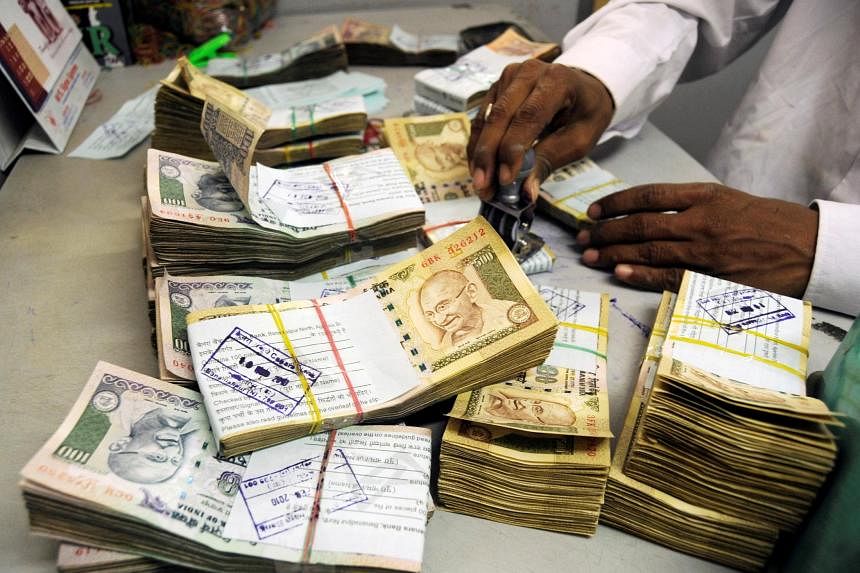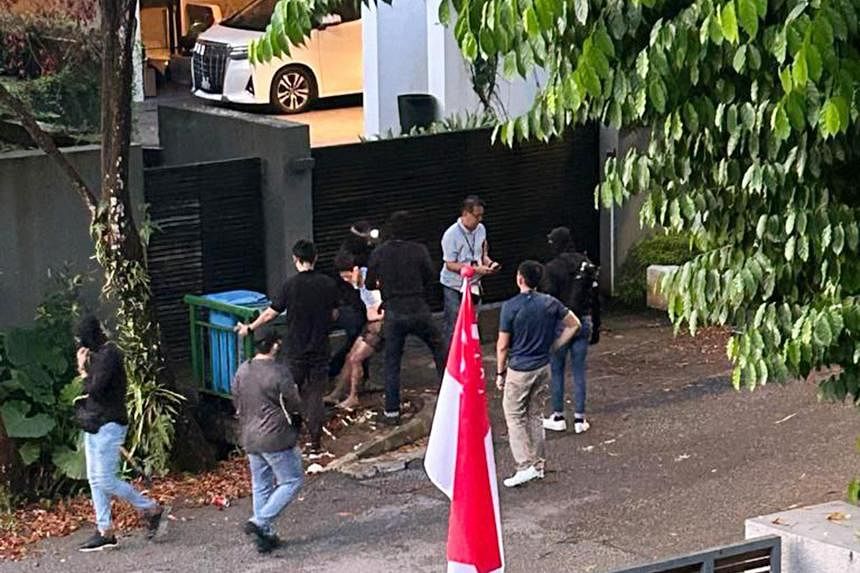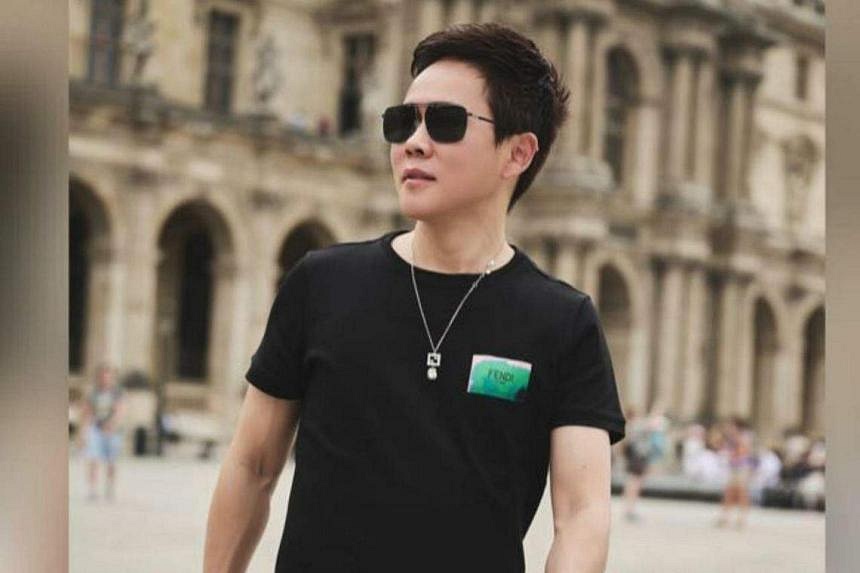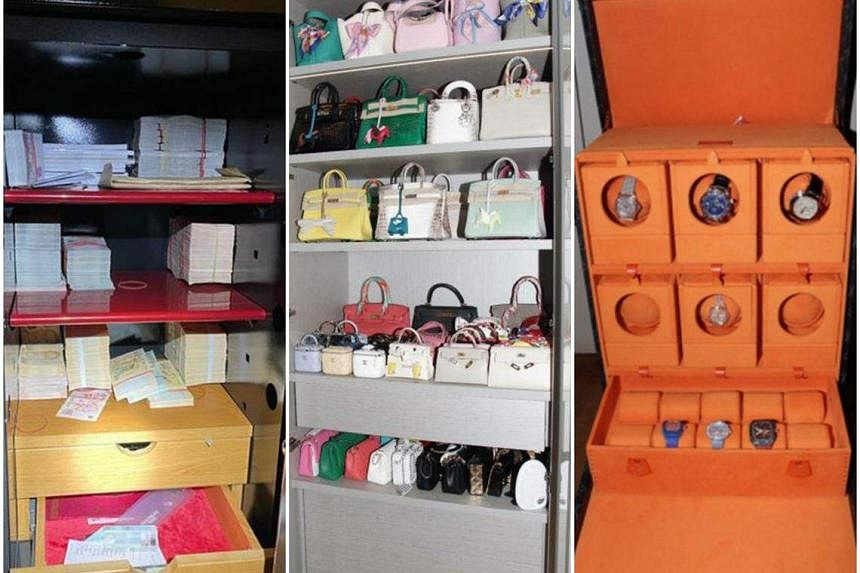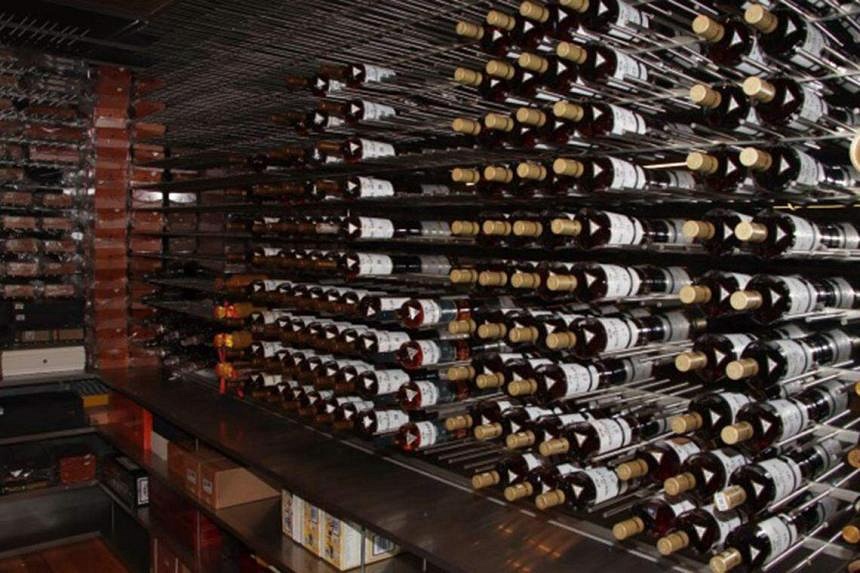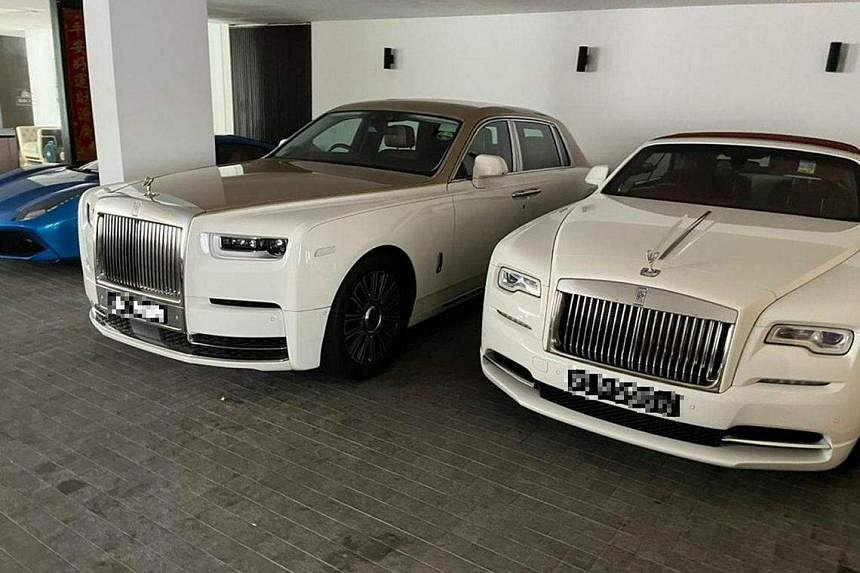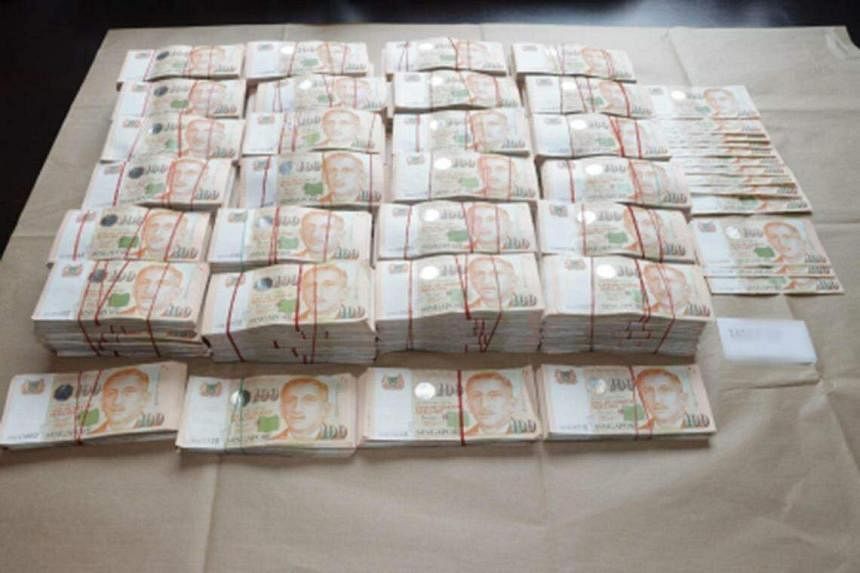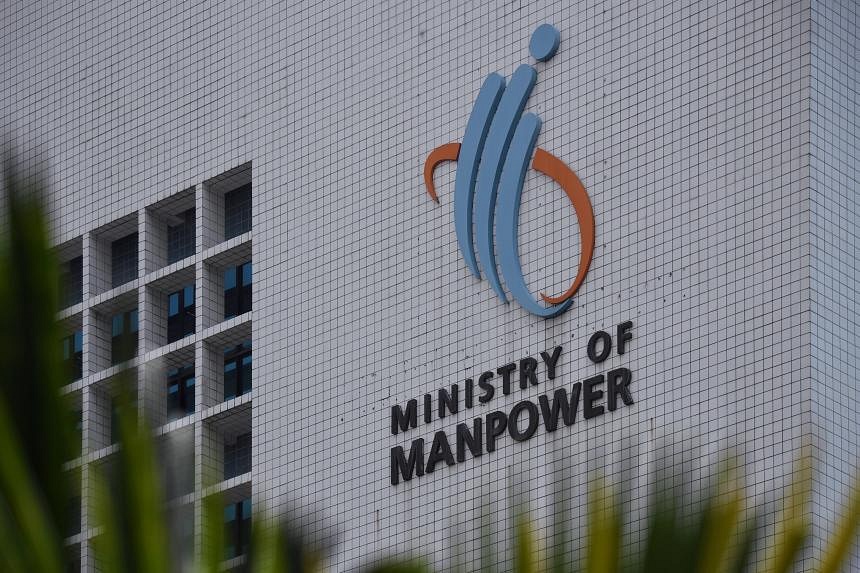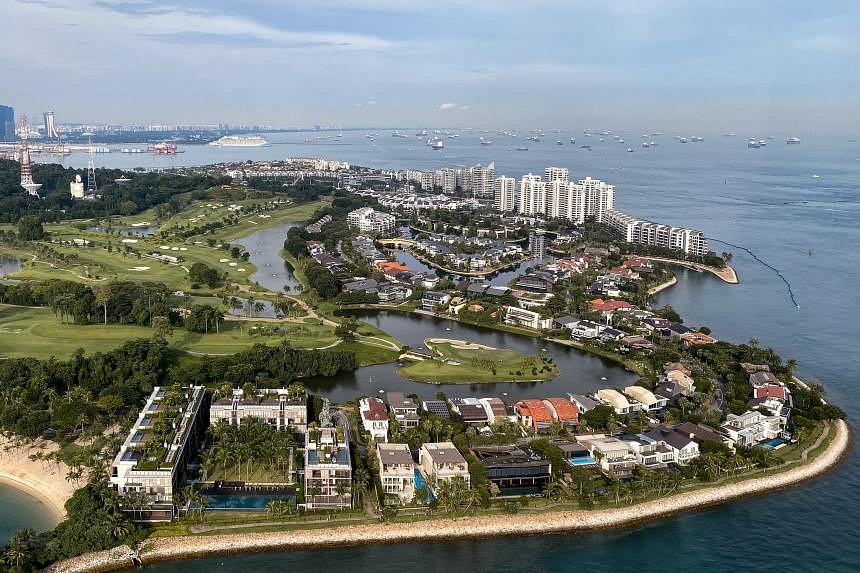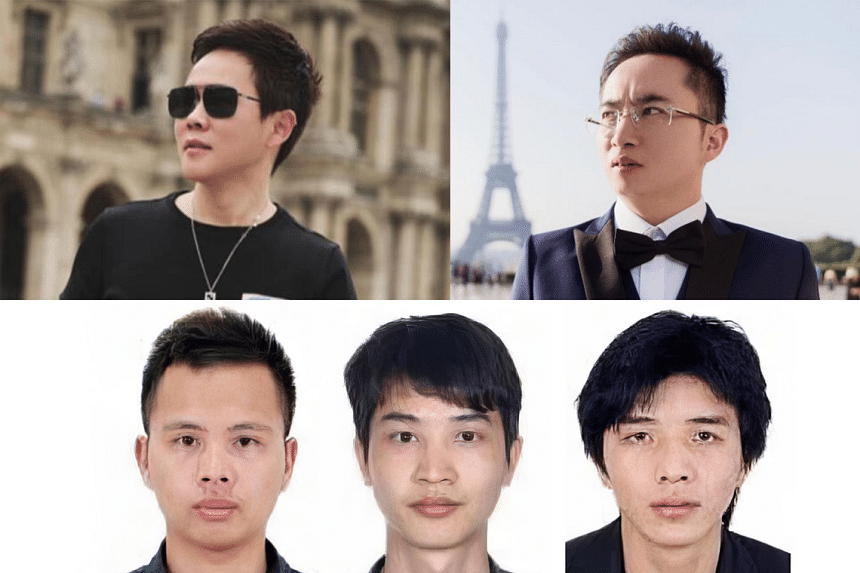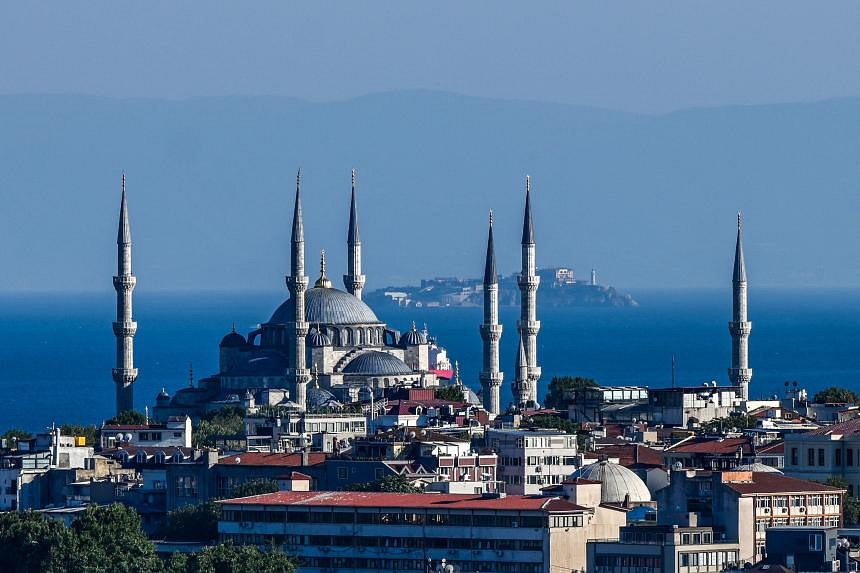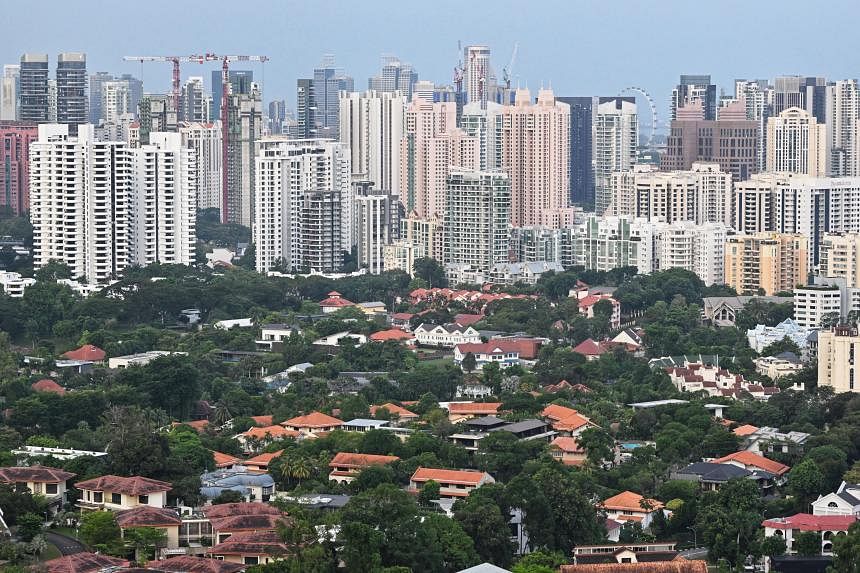- Joined
- Jul 25, 2008
- Messages
- 15,366
- Points
- 113
10 foreigners charged over role in crimes linked to about $1b in cash and assets
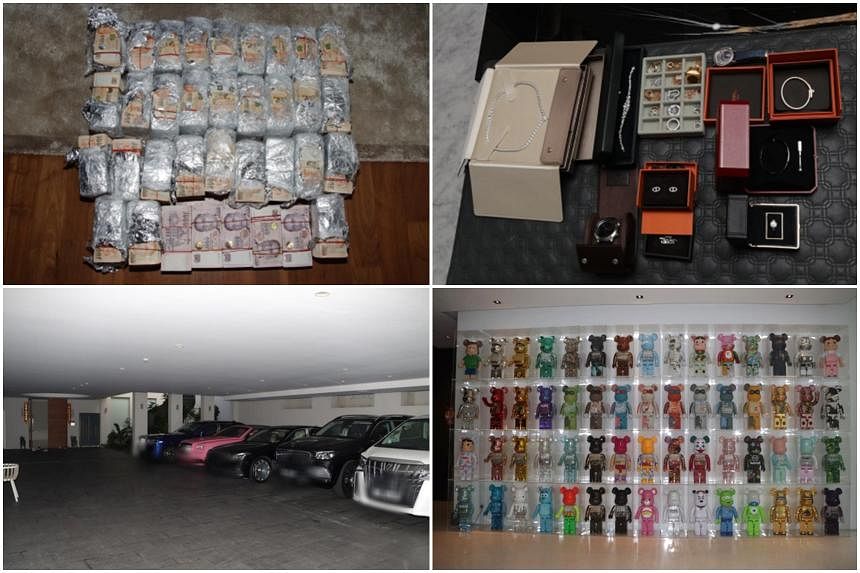
The police seized cash and luxury items, and issued prohibition of disposal orders against ornaments and cars as part of an islandwide raid. PHOTOS: SINGAPORE POLICE FORCE
Nadine Chua and Shaffiq Alkhatib
August 16, 2023
SINGAPORE -Ten foreign nationals from countries including China, Turkey and Cambodia were charged in court on Wednesday over their suspected involvement in offences including forgery, money laundering and resisting arrest.
These foreign nationals, aged between 31 and 44, were arrested on Tuesday morning following an islandwide raid by more than 400 officers.
They are believed to be connected to one another, and none is a Singaporean or permanent resident.
At 5pm on Wednesday, an application was made by Deputy Public Prosecutor David Koh for the 10 people to be charged that evening in a rare night court proceeding involving such offences.
The first to appear before District Judge Terence Tay was Su Haijin, 40, a Cypriot national, who was charged with one count of resisting arrest. He allegedly committed the offence at a house in Ewart Park near Holland Road.
The police said in a statement that during the arrest, officers identified themselves outside Su’s bedroom and ordered him to open the door.
Su allegedly jumped out of the second-floor balcony of a good class bungalow (GCB) and was found by the police hiding in a drain. He fractured his hands and legs due to the jump, and was taken conscious to hospital.
Su appeared in court via video-link from hospital as he is still receiving treatment.
After DPP Koh read details of Su’s charge in court, Su denied the sequence of events and claimed he did not know it was the police knocking at his door.
Speaking through a Mandarin interpreter, Su said he thought the knocks came from someone who was threatening to kill him.
The married man claimed he had an intimate encounter with a woman in Dubai, and that her boyfriend had threatened to kill him when he found out about the affair. Su said: “I thought it was that man who wanted to shoot me. I was not trying to run away from the police.”
After listening to Su explain his case for 10 minutes, the judge stopped him and told him this was not the proper forum to defend his charge.
Su also requested to be released on bail, but the prosecution said his remand was necessary to prevent collusion between the suspects involved in similar offences or the contamination of other evidence.
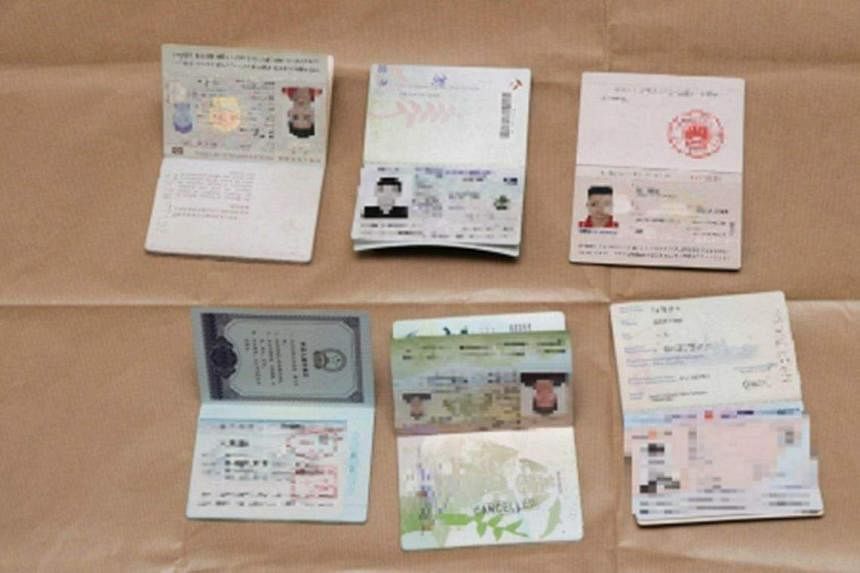
Foreign nationals, aged between 31 and 44, were arrested after an islandwide raid by more than 400 officers. PHOTO: SINGAPORE POLICE FORCE
About $1b in cash, assets seized and frozen in one of S’pore’s biggest anti-money laundering operations
The judge granted the prosecution’s application for Su to be further remanded and to be moved to a secure ward in Changi General Hospital.
After Su’s arrest, the police said, they seized cash of more than $2.1 million, and issued prohibition of disposal orders for 13 properties and five vehicles with an estimated value of more than $118 million.
The authorities also froze four related bank accounts with a total balance of more than $6.7 million.
Zhang Ruijin, 44, and a woman he referred to as his lover, Lin Baoying, 43, both Chinese nationals, were each charged with one count of forgery.
They were arrested at a bungalow in Pearl Island at Sentosa Cove.
Zhang allegedly had a foreign passport believed to be issued by Saint Kitts and Nevis, an island country in the Caribbean.
Lin was allegedly found with foreign passports believed to be issued by the Dominican Republic and Turkey. Referring to Lin, Zhang said: “You can separate her crimes from me, we are just lovers... You can bail me out, but remand her.”
The police said officers seized cash of more than $7.6 million, and issued prohibition of disposal orders for nine properties and five vehicles with an estimated value of over $106 million.
Cambodian national Chen Qingyuan, 33, was charged with money laundering after his arrest at his condominium in Leonie Hill Road in the River Valley area.
He was also allegedly found in possession of other foreign passports believed to be issued by China and the Dominican Republic.
The police seized items including close to $600,000 in cash and other foreign currencies, 23 pieces of jewellery, and six luxury watches.

Jewellery and luxury watches were among the items seized by police, as well as close to $600,000 in cash and other foreign currencies. PHOTO: SINGAPORE POLICE FORCE
17 firms penalised in last five years for breaking laws on money laundering and terrorism financing
MAS to build platform for banks to share customer info in fight against financial crime
After the DPP made an application for him to be further remanded for investigations, Chen said: “After being remanded for 48 hours, I have the right to ask for bail. The authorities can still conduct their investigations then.”
Chen repeated this a few times, but the judge granted the DPP’s application for him to be remanded.
Su Baolin, 41, a Cambodian national, was charged with using a forged document.
He was arrested at a GCB in Nassim Road. He was allegedly found in possession of a foreign passport believed to be issued by China.
Items including cash of more than $777,000, 33 luxury bags and watches, and 75 pieces of jewellery were seized.
The police froze three related bank accounts with a total balance of more than $2.4 million.
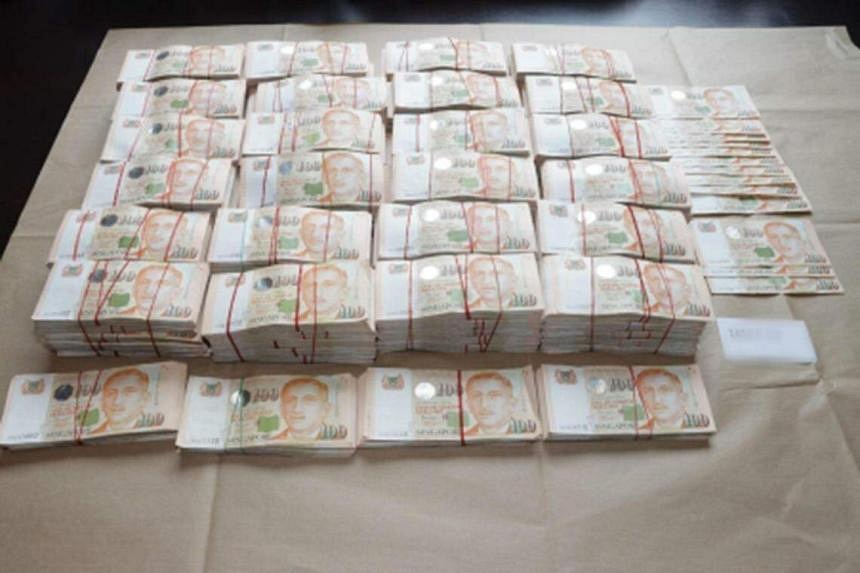
Cash and assets worth about $1 billion were seized by police. PHOTO: SINGAPORE POLICE FORCE
A 31-year-old Cambodian national, Su Wenqiang, was charged with one count of money laundering on Wednesday, after his arrest at a GCB in Lewis Road in Bukit Timah.
He allegedly had a foreign passport believed to be issued by China. The police seized items including cash of more than $600,000 and 11 pieces of jewellery.
The police froze eight related bank accounts with a total balance of more than $10 million.
Wang Dehai, a 34-year-old male Cypriot national, was charged with one count of money laundering. He was arrested at his condominium in Paterson Hill near Orchard Road.
He allegedly had other foreign passports believed to be issued by China and Cambodia. Police seized items including cash of more than $2.2 million, 35 luxury watches and bags, and 51 pieces of jewellery.
Ni-Vanuatu national Su Jianfeng, 35, was handed a money-laundering charge. He was arrested in a GCB in Third Avenue in Bukit Timah.
He allegedly had a foreign passport believed to be issued by China. Officers seized items including more than $1.4 million in cash, 95 pieces of jewellery, and 69 luxury bags and watches.

The assets seized by police included properties and luxury cars. PHOTO: SINGAPORE POLICE FORCE
Turkish national Vang Shuiming, 42, was charged with one count of using a forged document.
He was arrested in a GCB in Bishopsgate near Orchard Road and was allegedly found in possession of foreign passports believed to be issued by China and Vanuatu.
The police seized close to $720,000 in cash, 36 luxury watches and bags.
Wang Baosen, a 31-year-old Chinese national, was charged with money laundering after he was arrested at a condominium in Tomlinson Road in the Orchard area. The police seized cash of close to $112,000,
The cases involving all 10 people have been adjourned to next week.
The offence of money laundering for individuals is punishable with jail for up to 10 years, or a fine of up to $500,000, or both.
Those who commit forgery for the purpose of cheating may be jailed for up to 10 years and fined.
The offence of using a forged document is punishable with imprisonment of up to four years, or fine, or both.
Those who resist lawful apprehension may be jailed for up to a year, fined, or both.


